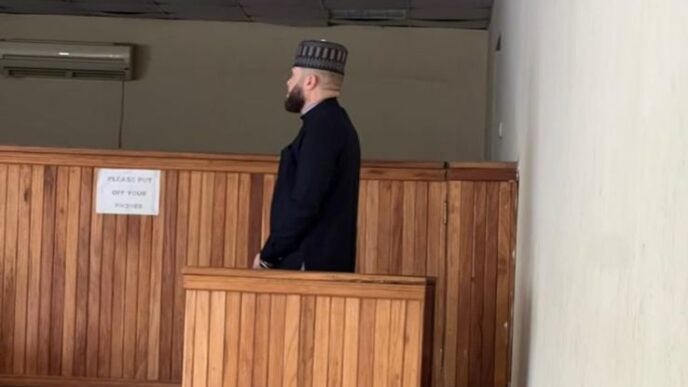Trust Nigerian politicians to turn every national policy into a regional slugfest. The latest episode in this never-ending drama is the proposed tax reform bills that have got northern governors’ knickers in a twist.
On Monday, these governors, led by Gombe state’s Muhammed Inuwa Yahaya, came out guns blazing against what they perceive as an anti-north agenda disguised as tax reforms.
But is this really about north versus south, or are we witnessing another case of politicians majoring in the minor?
To be sure, the presidency’s response through Bayo Onanuga was swift and calculated. “These reforms are not against the north,” he insisted. Well, he would say that, wouldn’t he? But let’s look beyond the rhetoric and examine what’s really at stake here.
Advertisement
The proposed reforms consist of four bills that, on paper at least, seem pretty reasonable. We’re talking about eliminating multiple taxation, streamlining tax processes, and even creating an office of Tax Ombudsman. Who wouldn’t want that? But as they say, the devil is in the details.
The real bone of contention here is the proposed derivation-based model for VAT distribution. Now, this is where things get interesting. The current system is like a poorly designed plumbing system where water flows in from one direction but gets distributed without rhyme or reason. The presidency argues that the new model will ensure taxes flow back to where goods are actually consumed rather than just where they’re remitted.
But here’s where it gets even more interesting. The National Economic Council (NEC) has thrown a spanner in the works by recommending the withdrawal of these bills for “more comprehensive consultation.” Translation: Let’s kick this can down the road until it’s politically convenient to pick it up again.
Advertisement
Truth be told, we’ve been here before. Remember the petroleum industry bill? How many years did that take to pass? How many “comprehensive consultations” did we need? Sometimes I wonder if these consultations are genuinely about improving legislation or just an elaborate dance to maintain the status quo.
The timing of this controversy is particularly fascinating. While we’re all busy arguing about tax reforms, Vice President Kashim Shettima is talking about decentralising the national grid. Now that’s something both North and South desperately need, considering how our national grid collapses more often than a house of cards in a hurricane.
Let’s put it this way: If our political leaders spent half as much energy solving real problems as they do fighting perceived regional battles, Nigeria would be Dubai’s tax haven by now. The northern states are worried about losing revenue? Fair enough. But shouldn’t the focus of all the governors in the country be on how to expand their revenue base .
Politicians on both sides need to understand that tax reforms aren’t a zero-sum game. A more efficient tax system benefits everyone. When businesses aren’t bogged down by multiple taxation, they grow. When tax administration is streamlined, compliance improves. When VAT distribution is fair, states are motivated to develop their economic potential.
Advertisement
The presidency’s assurance that these reforms won’t increase tax rates or lead to job losses sounds good on paper. But we’ve heard such promises before, haven’t we? Remember the fuel subsidy removal and all those promises of palliatives? How did that work out?
However, here’s the thing – we can’t keep running away from necessary reforms just because they’re politically inconvenient. The current tax system is about as efficient as using a fork to drink okro soup. It needs fixing, and that fixing might hurt some vested interests.
What we need is honest dialogue about these reforms, not political grandstanding. The northern governors have valid concerns about revenue distribution, but blocking reforms isn’t the answer.
The presidency needs to be more transparent about the potential impacts of these changes, both positive and negative.
Advertisement
Consequently, instead of withdrawing these bills entirely as NEC suggests, why not set up a timeline for implementation that allows states to prepare for the new reality? Why not create transition mechanisms that ensure no state is suddenly starved of funds?
The truth is, no region can prosper in isolation. Just as President Tinubu’s election victory required both northern and southern votes, these tax reforms need buy-in from all regions to succeed. Blackmail and subtle threats from either side will only lead us down the familiar path of failed reforms and missed opportunities.
Advertisement
As the bills head back to the drawing board (or perhaps the political morgue), one thing is clear: Until we learn to discuss national policies without the lens of regional politics, we’ll keep dancing one step forward, two steps back in our march toward progress.
The tax reforms saga continues, but the real reform we need might be in how we approach these national conversations. Until then, we’ll keep watching this drama unfold, one regional controversy at a time.
Advertisement
Views expressed by contributors are strictly personal and not of TheCable.
Add a comment












